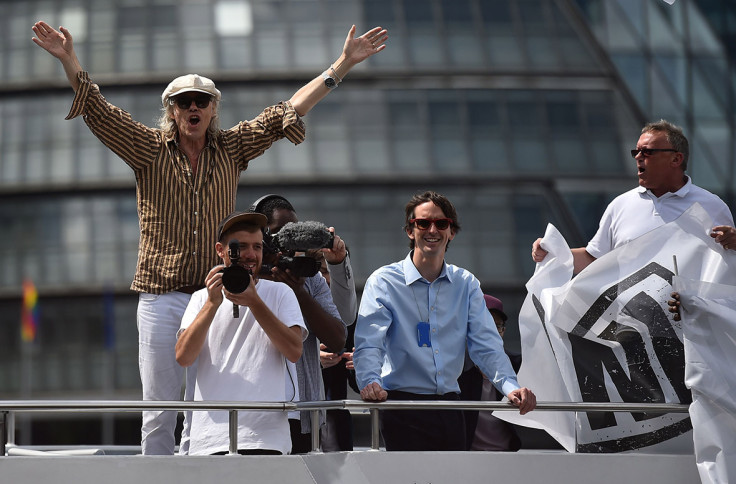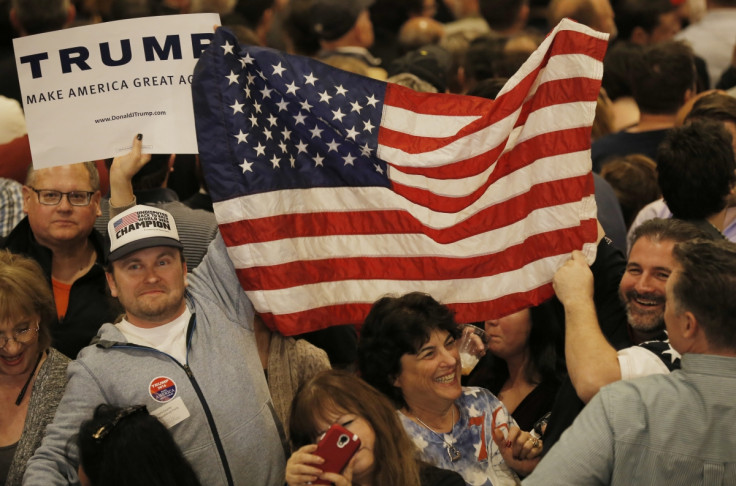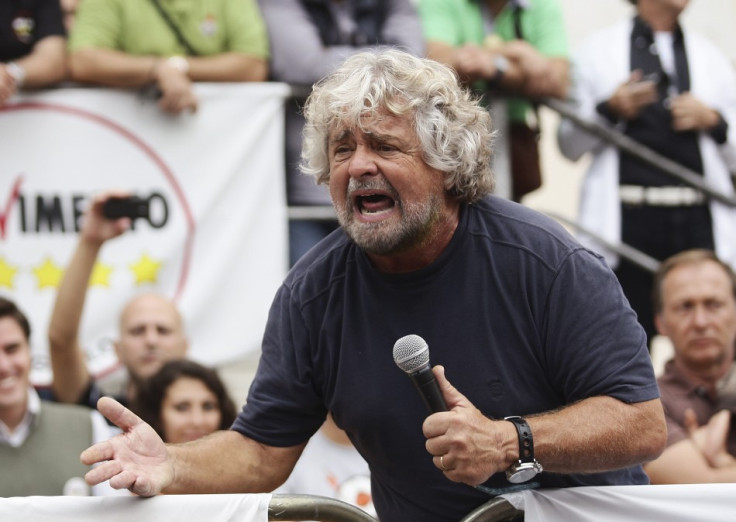Are 'champagne liberals' poisoning modern politics?
The New Upper Classes are angry and they don't care who knows it. Yet their fury is directed against a populism they helped stir up.

Live Aid hero Bob Geldof flicks V-signs at protesting fishermen while Labour peer and former head of Liberty Shami Chakrabarti openly denigrates the Essex Man at left-wing meetings. And, everywhere, well-educated liberals – beautiful people with usually beautiful thoughts – accuse the rest of the country of being racist, xenophobic and stupid.
In retreat, the bien pensants are not a pretty sight. Having gained the ascendency in the 1990s, the liberal metropolitan elite is suffering electoral challenges and a popular backlash that's even recruited Britain's new prime minister. Their response? As Prime Minister Theresa May suggests, they've become bewildered and angry, and they're even advocating overturning the democratic rights of the hoi polloi.
What the elite refuse to acknowledge, however, is their part in creating the current uprising against them.
Since the fall of the Berlin Wall, and in nearly all Western democracies, this self-selected metropolitan aristocracy has taken charge of the media, education, business and government.
And in the name of globalisation they've enacted 'liberal' economic and social policies that are proving detrimental to those lower down the income scale. Yet, instead of offering understanding, the elite has too often responded with insults – accusing those on the receiving end of being racist and/or stupid.
In response, the accused quietly seethe and, when given the chance, vote for Leave/Ukip (UK), the FN (France), AfD (Germany), Geert Wilders (Netherlands), the Sweden Democrats and, of course, Donald Trump – thus reinforcing the prejudices of the elite that working and lower middle-class voters are a "basket of deplorables".
Of course, these insults are intended as moral pressure, which to an extent works. Opinion polls usually understate the support for these parties and people – helping deliver more and more electoral shocks that leave the elite ever more angry and bewildered.
"I no longer understand my country," I've heard more than one of them say – in fact their most accurate statement for many months. That said, the misunderstanding is mutual because a key problem is that the elite now running the UK and most other Western democracies live in a bubble. As never before, they are cut off from the rest of us in terms of geography, education, lifestyle and opinion.
The New Upper Class
The phenomenon is best explained in the US where the widening gulf between a new urban elite and the rest of the population has been documented by political scientist Charles Murray. His book Coming Apart charts the growth of what he terms the 'New Upper Classes'; a cohort of highly-educated cognoscenti living entirely-separate lives from "Mainstream America".
Murray's contention is that, while the rich have always stuck together and somewhat separated themselves, they were – by-and-large – local. This led to a necessary degree of interaction and even inter-marriage with "lower class" neighbours. And that bred a genetic mix in terms of cognitive abilities, as well as plenty of cultural crossover. The rich, in other words, were integrated vertically into a particular locale, with many "marrying out" – meaning they were still in touch with other sections of American society.

No longer. In modern America, says Murray, we now have a cognitive rather than purely monetary elite. They attend the same handful of exclusive colleges where they meet and marry each other. As graduates, they occupy the same neighbourhoods (or "SuperZips") in a handful of the major cities.
They also educate (or should that be "hot-house") their children together, share each other's tastes and holiday in the same areas (often in properties they own). And it goes without saying they monopolise the best jobs – whether in the public or private sector, in business or the services, finance, media or the arts.
They are the law makers and the opinion formers. And, importantly, they're increasingly international – with nationality now less a divide than educational status and cognitive ability.
It is a cognitive-aristocracy that dominates commerce, politics, the arts and the media across the developed world. So, just as this elite occupy a small number of 'SuperZips' so they occupy the same postcodes in London (SW3, W11, NW3 and N1) and arrondissements in Paris (the 7<sup>th and 16<sup>th) etc.
But, crucially, they share the same values and, give-or-take the odd policy-specialisation, pretty-much think as one when it comes to the broad thrust of politics. Murray uses the term "liberal", though that's not a straight-swap for "left-wing" (or even "liberal") in the UK. Perhaps "Blairite" gets us closest: internationalists, happy to make money while also agonising over – and in many cases trying to solve – the world's ills.
Now over their student radicalism, the New Upper Classes are reconciled to capitalism to the point they run it, although they remain dedicated to ironing out its inherent injustices and are certainly happy to blend the private and public realm (to the irritation of both). "Consensus politics" they call it, with the consensus, of course, largely between themselves.
That said, while talking a near-perfect game with respect to inclusivity, they show a remarkable level of intolerance when it comes to the lower orders of their indigenous tribes. Whites below them on the social scale are condemned for their nativist views (i.e. for rejecting their consensus), poor social etiquette and low-brow tastes.
The elite's moral needs
Indeed, it's their "champagne liberalism" (as I call it) that explains the gentle leftward drift of key New Upper Class bibles such as the Financial Times, The Economist and – of course – The New York Times. But what explains their liberalism, especially given their exalted position at the top of the capitalist tree? In fact, it's this very position that explains it, at least according to Abraham Maslow.

For Maslow – a renowned psychologist working in the 1940s – upper class liberalism was a result of "self-actualisation" (the notion of being all you could be), which was the result of satisfying all other human needs.
According to Maslow's famous Hierarchy of Needs, we start with basic needs such as food and water, which – only once satisfied – allows us to seek safety.
Feeling safe fosters the need for love and belonging which, once satisfied, generates a need for self-esteem, often through material acquisition. And once our material needs have been satisfied we arrive at "self-actualisation" in which we develop needs such as self-expression (engendering creativity) and self-affirmation (engendering morality).
Yet this is a post-materialist morality – a serene worldview that finds both Mainstream America, with its sports-watching couch-potato obesity (their view, not mine), and Essex Man, with his bling-acquiring materialist aggression (ditto) – offensive: hence the Geldofs and the Chakrabartis, and many others like them, expecting no censure when openly insulting those not sharing their world view, perhaps due to being further down Maslow's hierarchy.
Certainly, the elite's ugly side has been revealed by the current pressures. Yet as an outsider in their midst (an Essex Man living in North London) I've had to absorb the implicit and explicit denigration of my roots for years – while taking their lectures on morality and inclusivity. They've even made my rather normal homeland appear deviant. But it's living in a bubble that makes you deviant, as well as dangerous.
As Charles Murray states in Coming Apart: "A New Upper Class that make decisions affecting the lives of everyone else but increasingly doesn't know much about how everybody else lives is vulnerable to making mistakes". He might have added "before then blaming everyone else for being racist and stupid".
Robert Kelsey is the best-selling author of a series of "anti-self help, self help" books, including What's Stopping You?, Get Things Done and The Outside Edge. The former financial journalist and investment banker is also the deputy chairman of entrepreneurial think tank The Centre for Entrepreneurs which he co-founded.
© Copyright IBTimes 2025. All rights reserved.






















